Description
- Faculty:
- Joyce Campbell
- Duration:
- 2 Full Days
- Format:
- Audio and Video
- Copyright:
- May 17, 2017
- Strategies for intracranial pressure monitoring and lumbar drains
- Quick tips to advance your neuro assessment skills
- Neuro emergencies to keep on your radar
- Understand the newest drugs used to treat neurological disease
- Tools for maximizing time to needle for stroke
- Stroke and young women: The story of 3 lives
- Algorithms for diagnosing and treatment
- Hope through research
- Simplifying neuro assessment through application of neuro anatomy
- Correlate pathophysiology with clinical manifestations
- NIHSS and GCS, brain death, Mini
- Mental, verbal fluency, memory, right and left hemisphere function, CAM assessment
- CT, CTA, arteriogram, MRI, perfusion
- Traumatic Brain Injury
- Updated recommendations for care
- Practical approaches for measuring IICP
- Research on neuroprotective agents
- Maximizing time to needle time for ischemic stroke
- The 5 D’s for identifying posterior stroke
- Wading through the clinical practice guidelines for blood pressure management in stroke patients
- Stroke and the young adult
- Expanding the window of care
- “Still Alice”: Mild, moderate and severe
- Treatment for cognitive and neuropsychiatric symptoms
- From “mice to men”: Hope is on the horizon
- Caregiver support
- Seizure types and treatment
- Unprovoked seizure: Work-up and treatment decisions
- Status epilepticus
- Traditional and alternative medicine treatment
- Deep brain stimulation
- Integrated care: Conventional treatments and supportive therapies
- Neurological manifestations
- Diagnostic work-up
- Unpredictable disease of CNS
- Diagnostic criteria
- Current treatment practices
- Clinical manifestations; Diagnostic work up
- Assistive technology challenge
- Clinical trials
- Aphasia
- Dysarthria
- Dysphagia
- Visual problems
- Mobility
- Cognitive impairment
- Hemi-inattention
- Anosognosia
- Pseudobulbar affect (PBA)
- Spasticity
- Dizziness and vertigo
- Bowel and bladder dysfunction
- Sleep disturbances
- Depression
- Social isolation
- Caregiver fatigue
- Osmotic diuretics
- Sedatives and pain medications
- Antispasmodic medications
- Antiseizure medications
- Antidepressants
- Medications to prevent and treat stroke
- Chemotherapy for brain tumors
- Disease modifying agents for MS
- Corticosteroids
- Medications to treat:
- Parkinson’s Disease
- Alzheimer’s Disease
Joyce Campbell – 2-Day Neurological Challenges: New Medications & Promising Interventions to Change Practice
Description
Over the past 20 years, I have witnessed dramatic changes in the care of patients with neurosurgical problems. I have moved from feeling helpless to extremely encouraged by what we can do for our patients. Technology and pharmaceuticals have altered the course of many of these diseases. Many of our old practices have been “put to pasture”. We will look beyond the basics and explore areas that are less known. Every day new and exciting research provides us with novel treatments. We will explore new drugs, promising interventions and evidence that is emerging into practice. My goal is to equip you with tools to better identify problems and improve overall care on the frontline. It is my aspiration that you will leave the seminar energized and better prepared to care for patients with neurological problems.
Joyce Campbell, MSN, SCRN, CCRN, FNP-C
Handouts
| Manual ZNM077375 (26.87 MB) | 167 Pages | Available after Purchase |
Outline
Toolbox for Assessment
Neurological Testing
10 Leading Neurological Disorders
Stroke Patient
Alzheimer’s Disease
Epilepsy
Parkinson’s Disease
Brain Tumor
HIV
Multiple Sclerosis
ALS
Emergent Neurological Disease: Zika and Guillain Barré
Commonalities and Unique Problems:
Pharmacological Therapy
Faculty
Joyce Campbell, MSN, CCRN, SCRN, FNP-BCRelated seminars and products: 4
Joyce Campbell, MSN, CCRN, SCRN, FNP-BC, has been involved in the nursing field for 35 years. For over 25 years, she taught in an associate degree nursing program where her primary focus was the theory and clinical instruction of neuroscience nursing. In addition to teaching, she has been employed by Comprehensive Health System in Chattanooga, Tennessee for the past 30 years. At Erlanger, she has adopted many roles, including neurosurgical and trauma critical care staff nurse, educator and nurse practitioner. Currently, she serves on the neuroservice line committee and provides stroke education to staff and patients. Erlanger Southeast Regional Stroke Center, an accredited Primary Stroke Center, houses a leading-edge stroke care facility serving over 2000 stroke patients annually.
Through her work at Erlanger, Joyce is able to experience, first hand, the latest innovative strategies for extending the window of treatment for stroke patients. She holds a BSN from East Tennessee State University, an MSN from the University of Tennessee at Knoxville, and completed post-graduate studies at the University of Alabama at Birmingham. Joyce is an active member of the American Association of Critical Care Nurses, the American Association of Neuroscience Nurses, American Association of Nurse Practitioners, and the Chattanooga Association of Nurses in Advanced Practice, where she has served as president and is a member of the educational committee.
Speaker Disclosures:
Financial: Joyce Campbell has an employment relationship with Erlanger Southeast Regional Stroke Center. She receives a speaking honorarium from PESI, Inc.
Nonfinancial: Joyce Campbell is a member of the educational committee for the Chattanooga Association of Nurses in Advanced Practice.
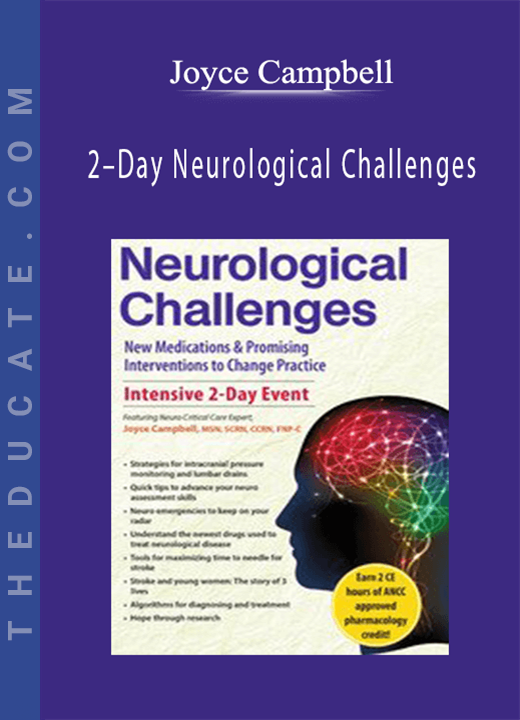
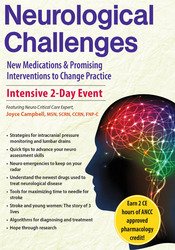


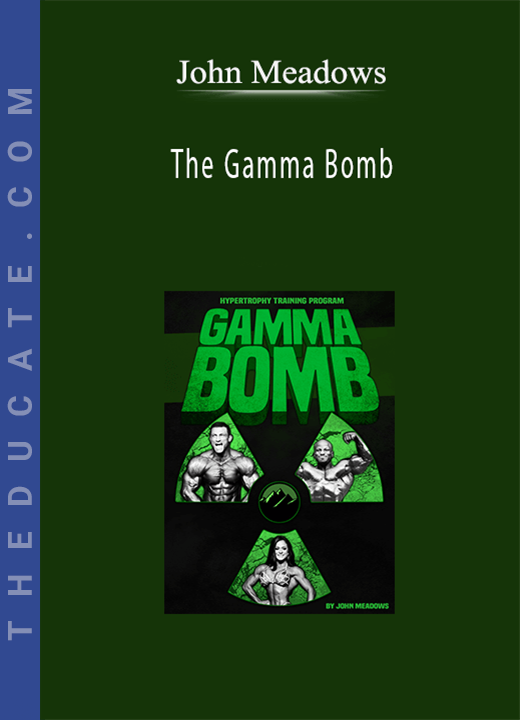
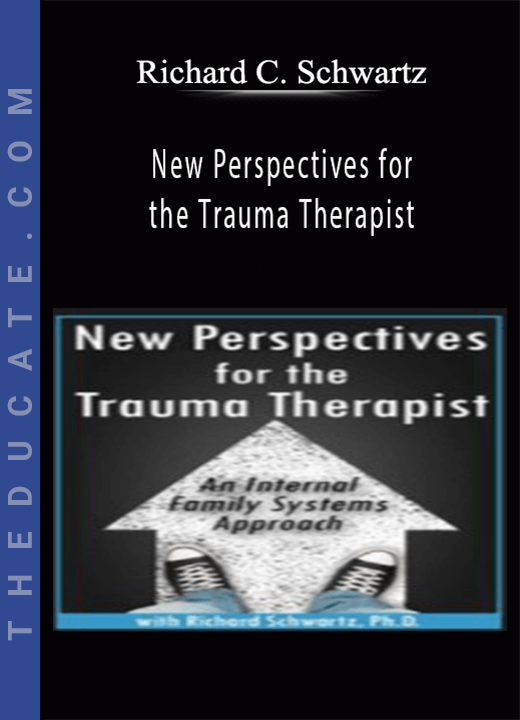
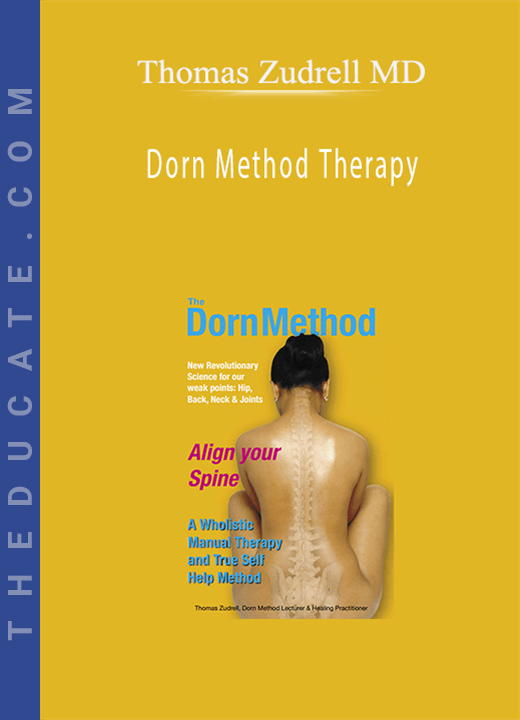
4 reviews for Joyce Campbell – 2-Day Neurological Challenges: New Medications & Promising Interventions to Change Practice
There are no reviews yet.